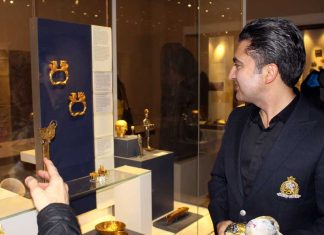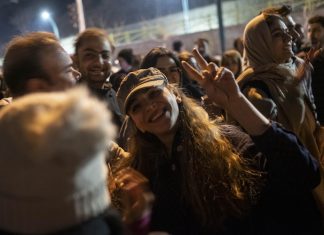
DUBAI, Jan 20 (Reuters) – A verdict in Iran‘s trial of French tourist Benjamin Briere, jailed for over a year on charges of “spying and acting against the Islamic Republic”, could be issued within days, one of his lawyers told Reuters on Thursday.
Briere has been held since May 2020, when he was arrested after flying a helicam – a remote-controlled mini helicopter used to obtain aerial or motion images – in the desert near the Turkmenistan-Iran border.
“Probably there will be no other hearing. The verdict most possibly will be issued early next week,” said one of Briere’s lawyers, Saeid Dehghan.
A judiciary spokesman could not immediately be reached for comment.
Iran Hostage Release Must Be Part of Nuclear Deal, Richard Ratcliffe Says
If convicted, Briere might receive “three months to one year jail sentence for acting against Islamic Republic and between six months to three years for spying charges”, the lawyer said.
“The trial was held behind closed doors at branch 4 of the Revolutionary Court in Mashhad city,” Dehghan said.
“Because of lack of enough evidences and our strong defence, we hope the judge will consider issuing the minimum sentence.”
‘Let Him Go Home’: French Woman’s Tearful Plea over Brother Jailed in Iran
Briere’s trial comes as the United States and other parties to Iran‘s 2015 nuclear deal, including France, try to restore the pact, which was abandoned in 2018 by then-U.S. President Donald Trump.
In recent years, Iran‘s elite Revolutionary Guards have arrested dozens of dual nationals and foreigners, mostly on espionage and security-related charges.
Rights groups have accused Iran of trying to extract concessions from other countries through such arrests, while Western powers have long demanded that Tehran free their citizens, who they say are political prisoners.
Tehran says such arrests are based on its criminal code and denies holding people for political reasons.
OPINION: How We Became Activists to Free Our Parents from Tehran’s Evin Prison
(Writing by Parisa Hafezi Editing by Bernadette Baum)





